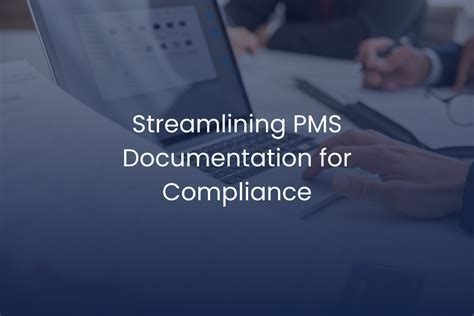In today’s dynamic business environment, mastering leadership skills is essential for effective management. Management consulting, a field dedicated to improving organizational performance, plays a crucial role in shaping these skills. This article delves into the core of management consulting, exploring the essential leadership qualities required for success and examining the strategies employed by top firms in the industry. We will also address the common challenges consultants face, the innovative approaches transforming the field, and the growing influence of technology. Through case studies and future trend analyses, this comprehensive review aims to provide valuable insights for those looking to excel in leadership and management consulting.
Discover more about this topic with rosawblog.com in detail.
1. Overview of Management Consulting
Management consulting is a specialized field focused on helping organizations improve their performance by analyzing existing problems and developing plans for improvement. Consultants work closely with companies to identify inefficiencies, recommend strategies, and implement solutions that drive growth and enhance overall effectiveness. The scope of management consulting is broad, encompassing various industries and addressing diverse challenges, from operational efficiency to strategic planning and organizational restructuring.
Consultants often bring a wealth of experience and expertise, offering objective perspectives that internal teams might overlook. They provide tailored advice based on extensive research and industry knowledge, ensuring that recommendations align with the company’s goals and market trends. The role of a management consultant is not only to diagnose issues but also to guide organizations through the complexities of change, fostering leadership and strategic thinking within the management team. As businesses face increasing pressure to adapt and innovate, the demand for skilled management consultants continues to grow.

2. Key Leadership Skills for Effective Management
Effective management hinges on a set of core leadership skills that enable individuals to guide teams, drive strategic initiatives, and foster a productive work environment. Communication is paramount; a successful leader must clearly articulate vision, expectations, and feedback while also being an active listener who values input from all levels of the organization. Decision-making is another critical skill, requiring the ability to assess situations quickly, weigh options, and make informed choices that align with the organization’s goals.
Emotional intelligence plays a significant role in leadership, as it allows managers to connect with their teams, understand their needs, and build strong relationships based on trust and respect. Additionally, adaptability is essential in today’s rapidly changing business landscape. Leaders must be open to new ideas, flexible in their approach, and capable of guiding their teams through uncertainty. Finally, strategic thinking is crucial for long-term success, enabling leaders to foresee challenges, capitalize on opportunities, and ensure that the organization remains competitive and forward-looking in an evolving market.

3. Top Management Consulting Firms
The management consulting industry is dominated by several key firms renowned for their expertise, global reach, and impact on businesses worldwide. McKinsey & Company, often regarded as the gold standard in the field, is known for its deep industry knowledge and rigorous approach to solving complex business problems. McKinsey’s influence spans multiple sectors, from healthcare to technology, making it a trusted advisor to many of the world’s leading companies.
The Boston Consulting Group (BCG) is another top player, celebrated for its innovative approaches to strategy development and its ability to drive transformation within organizations. BCG’s data-driven insights and emphasis on digital transformation have positioned it as a leader in helping businesses navigate the challenges of the modern economy.
Bain & Company, with its focus on achieving measurable results, rounds out the top three. Bain’s commitment to aligning its strategies with client goals ensures that its recommendations lead to tangible improvements in performance. Beyond these three giants, other firms like Deloitte Consulting, PwC, and Accenture also play significant roles, each offering specialized services that cater to the unique needs of various industries and markets around the globe.

4. Common Challenges in Management Consulting
Management consulting, while rewarding, presents several challenges that consultants must navigate to achieve success. One of the primary challenges is managing client expectations. Clients often seek quick solutions to complex problems, and aligning their expectations with the reality of the consulting process can be difficult. This requires consultants to communicate clearly and set realistic goals from the outset.
Another challenge is the need to adapt to diverse organizational cultures. Each client operates within a unique environment, and consultants must quickly understand and integrate into these cultures to deliver effective solutions. This often involves overcoming resistance to change, as employees may be wary of external advice or reluctant to alter established practices.
Time management is also a significant hurdle, as consultants frequently juggle multiple projects with tight deadlines. Balancing the demands of thorough analysis with the need for timely delivery requires exceptional organizational skills and the ability to prioritize tasks effectively.
Additionally, staying updated with industry trends and technological advancements is crucial, as clients expect consultants to provide cutting-edge solutions. The constant pressure to innovate and stay ahead of the curve adds another layer of complexity to the consulting profession.
5. Innovative Strategies in Management Consulting
Innovation is at the heart of successful management consulting, as firms strive to offer solutions that not only address current challenges but also anticipate future needs. One of the most significant strategies in recent years has been the integration of data analytics into consulting practices. By leveraging big data, consultants can provide deeper insights and more accurate forecasts, allowing clients to make informed decisions based on robust evidence.
Another innovative approach involves the use of agile methodologies, traditionally employed in software development, to enhance project management and execution. This iterative, flexible framework enables consultants to respond quickly to changes, deliver incremental value, and adjust strategies as new information emerges.
Digital transformation consulting has also become increasingly vital, with firms guiding clients through the complexities of adopting new technologies and digital processes. This often involves rethinking business models, optimizing operations, and enhancing customer experiences through digital means.
Moreover, there is a growing emphasis on sustainability and social responsibility within consulting strategies. Firms are helping clients not only achieve financial success but also ensure that their operations are environmentally sound and socially equitable, aligning with the broader goals of lo
6. The Role of Technology in Management Consulting
Technology plays an increasingly pivotal role in management consulting, reshaping how consultants approach problem-solving and deliver value to clients. Advanced analytics tools allow consultants to sift through vast amounts of data, uncovering patterns and insights that inform strategic decisions. These tools enhance the precision of recommendations, enabling data-driven approaches that are more reliable and impactful.
Artificial intelligence (AI) and machine learning are also transforming the consulting landscape by automating routine tasks and providing predictive analytics. These technologies help consultants identify trends, forecast outcomes, and create tailored solutions that are both innovative and effective.
Moreover, technology facilitates better collaboration between consultants and clients. Cloud-based platforms and communication tools enable real-time data sharing, project tracking, and seamless interaction, regardless of geographic location. This ensures that consulting projects remain agile and responsive to client needs.
Finally, digital transformation itself is a key service area within management consulting, as firms guide clients through the adoption of new technologies, helping them modernize operations, improve efficiency, and stay competitive in an increasingly digital marketplace.
7. Case Studies of Successful Management Consulting Projects
Case studies of successful management consulting projects highlight the transformative impact that expert guidance can have on organizations. One notable example is a global retail chain that engaged a consulting firm to streamline its supply chain operations. By implementing advanced analytics and optimizing inventory management, the firm reduced costs by 15% and improved delivery times, significantly enhancing overall efficiency.
Another success story involves a technology company that sought to revamp its digital strategy. Consultants introduced innovative digital marketing techniques and revamped the company’s online presence, resulting in a 30% increase in customer engagement and a 25% boost in sales within the first year.
In the healthcare sector, a consulting firm helped a hospital network integrate electronic health records and improve patient care processes. This led to a 20% reduction in administrative costs and a notable increase in patient satisfaction scores.
These case studies demonstrate how tailored consulting so
8. Future Trends in Management Consulting
The future of management consulting is poised to be shaped by several emerging trends that reflect the evolving needs of businesses. One key trend is the increased emphasis on digital transformation. As organizations continue to embrace advanced technologies, consultants will play a crucial role in guiding them through the complexities of digital integration and innovation.
Artificial intelligence and machine learning are expected to further revolutionize consulting practices. These technologies will enhance data analysis, automate routine tasks, and provide deeper insights, enabling consultants to deliver more precise and actionable recommendations.
Sustainability and social responsibility are becoming central to consulting strategies. Firms will increasingly focus on helping clients achieve their environmental and social goals, integrating sustainability into core business strategies.
Additionally, the rise of remote and hybrid work models will influence consulting engagements. Consultants will need to adapt their approaches to address the unique challenges of virtual collaboration and remote team management, ensuring effective solutions in an increasingly digital and dispersed business environment.
Mastering leadership through effective management consulting requires a deep understanding of key skills, innovative strategies, and technological advancements. As the field evolves, embracing these elements and staying ahead of emerging trends will be crucial for consultants. By navigating challenges and leveraging opportunities, organizations can achieve significant improvements and drive long-term success.
rosawblog.com
